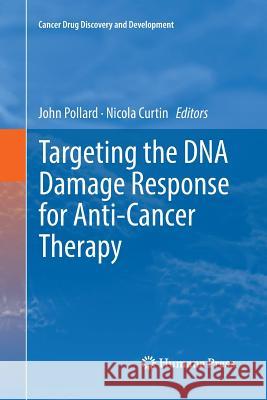Targeting the DNA Damage Response for Anti-Cancer Therapy » książka
topmenu
Targeting the DNA Damage Response for Anti-Cancer Therapy
ISBN-13: 9783030093365 / Angielski / Miękka / 2018 / 401 str.
Kategorie BISAC:
Wydawca:
Humana Press
Seria wydawnicza:
Język:
Angielski
ISBN-13:
9783030093365
Rok wydania:
2018
Wydanie:
Softcover Repri
Numer serii:
000032581
Ilość stron:
401
Waga:
0.57 kg
Wymiary:
23.39 x 15.6 x 2.13
Oprawa:
Miękka
Wolumenów:
01
Dodatkowe informacje:
Wydanie ilustrowane











